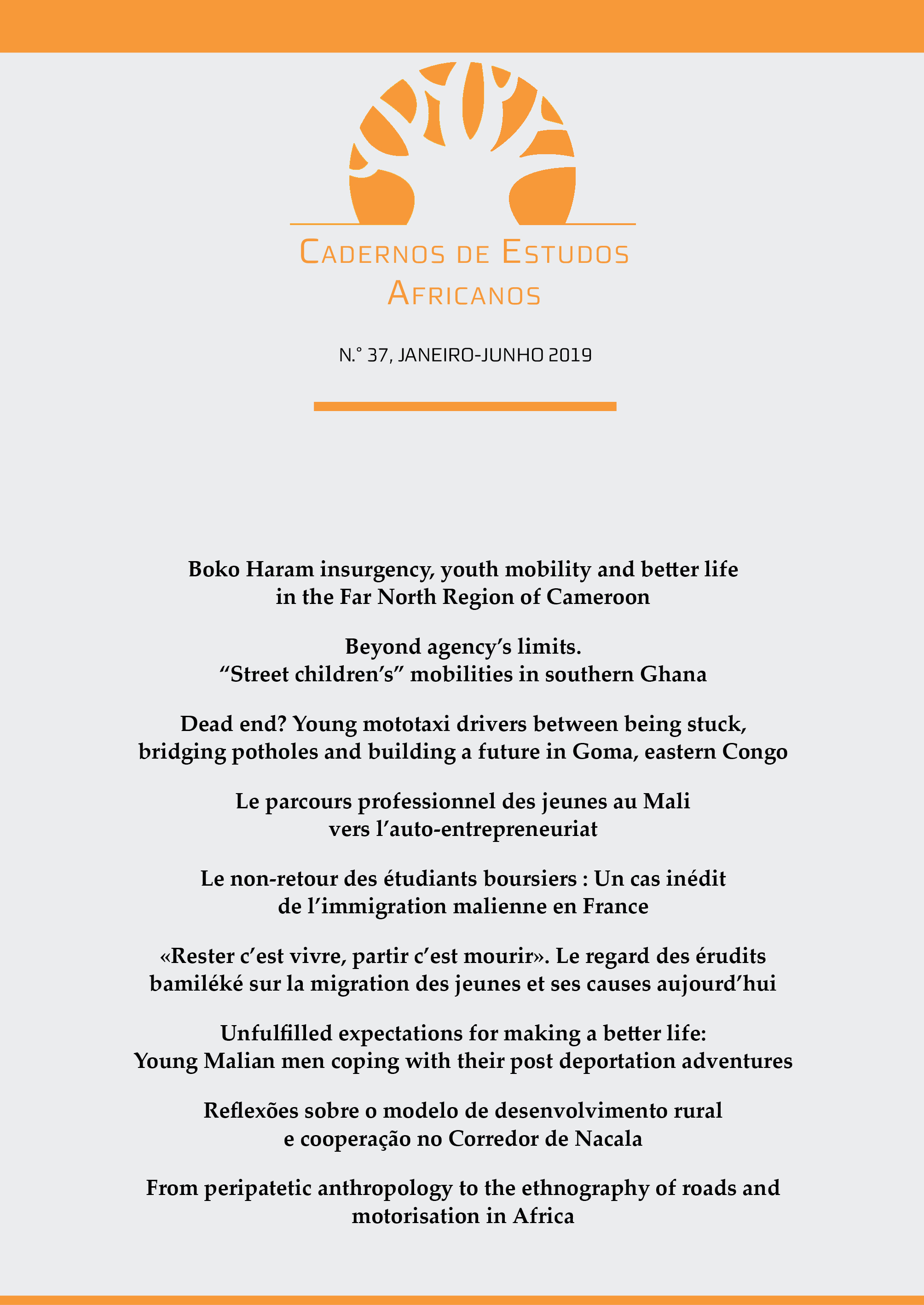Introduction: Young people working for better lives in West and Central Africa
DOI:
https://doi.org/10.4000/cea.3543Resumo
After more than a decade of emphasizing African children’s and youth’s agencies, possibilities and creativities in more or less challenging social, political and economic environments (see Bordonaro & Carvalho, 2010; Christiansen, Utas, & Vigh, 2006; Honwana & de Boeck, 2005; Martin, Ungruhe, & Häberlein, 2016; Spittler & Bourdillon, 2012), other recent studies increasingly highlight the young people’s powerlessness, bleak presents and uncertain futures. Doing so, the image of an enduring social, political and economic exclusion is manifested in popular conceptualizations of “being stuck” (Sommers, 2012), “persistent marginalization” (Resnick & Thurlow, 2015) and probably most prominently in Alcinda Honwana’s (2012) conceptualization of “waithood” (see Dhillon & Yousef, 2009), all implicitly acknowledging the more than twenty year old observation of Africa’s “lost generation” (Cruise O’Brien, 1996). Seemingly affected by deficiencies of various kinds and hence often forced into all sorts of problematic or dangerous engagements in order to – socially or literally – survive, today’s young generation in African settings is widely portrayed to live lives “out of place” (see Invernizzi, Liebel, Milne, & Budde, 2017) and outside social norms. It is this shift back to conceptualizations of children and youth as social problem that this special dossier aims to scrutinize and to challenge.
Ficheiros Adicionais
Publicado
Edição
Secção
Licença

Este trabalho encontra-se publicado com a Licença Internacional Creative Commons Atribuição-NãoComercial-CompartilhaIgual 4.0.
Autorizo a publicação do artigo/recensão submetido do qual sou autor.
Declaro ainda que o presente artigo é original, que não foi objecto de qualquer tipo de publicação, e cedo em exclusivo os direitos de publicação à revista Cadernos de Estudos Africanos. A reprodução do artigo, no todo ou em parte, noutras publicações ou noutros suportes depende de autorização prévia da editora Centro de Estudos Internacionais do Iscte - Instituto Universitário de Lisboa.

